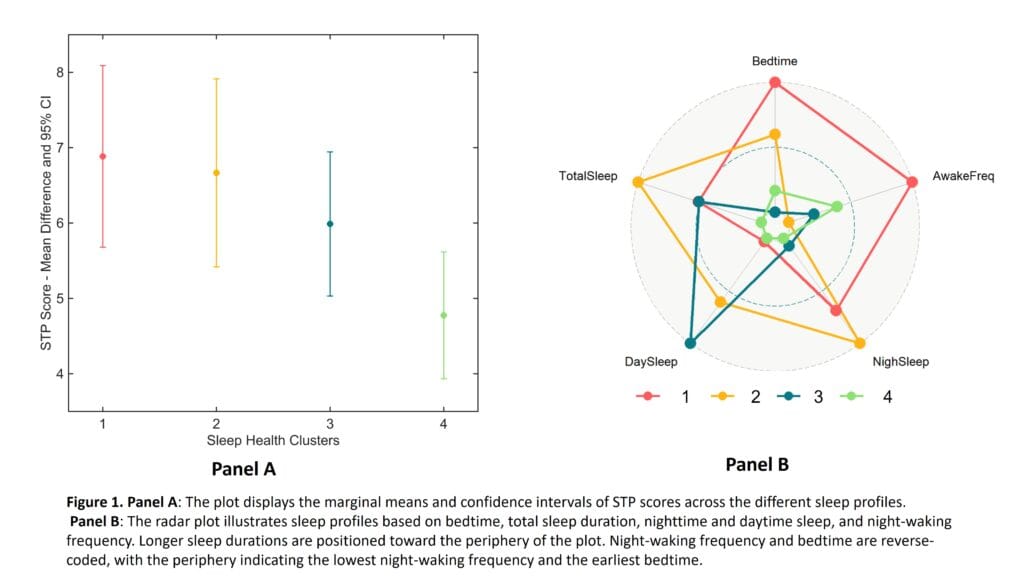Global Health
Sleep health profiles during early infancy are associated with emerging executive function development Ayesha Sania* Ayesha Sania Nicolò Pini Lynn Chen Kirsten A. Donald Michal Zieff Seonjoo Lee Dima Amso William P. Fifer
Background: Infant sleep health is increasingly recognized as a key component of brain maturation and executive function (EF) development in early childhood. Data from low-resource settings remain scarce, where environmental and cultural factors may uniquely shape sleep patterns.
Methods: Data were collected from 200 mother-infant dyads in a prospective cohort study in Gugulethu, Cape Town, South Africa. Infant sleep was assessed using the Brief Infant Sleep Questionnaire at 2–5, 6–10, 12–15, 16–19, and 20–24 months. At 24 months, EF was assessed using the Glitter Wand (GW) task for inhibitory control and the Spin the Pot (STP) task for both inhibitory control and working memory. Nonparametric K-means clustering identified sleep profiles of bedtime, night and day sleep duration, and night-waking frequency. Multiple linear regression models were used to examine associations between sleep clusters at each time point and EF outcomes. Models were adjusted for maternal education, anxiety, depression, family income, and age at EF assessment.
Results: Four sleep profiles emerged: Profile-1 (25.4%) with early bedtime, long night and total sleep, and few night-wakings; Profile-2 (26.3%) with shorter total sleep and longer day sleep; Profile-3 (26.1%) with later bedtime, long day and total sleep, and frequent night-wakings; and Profie-4 (28.3%) with latest bedtime and shortest total sleep. We observed a dose-response relationship between sleep profiles at 2–5 months and STP scores (P for trend = 0.01). On average, the children in profile-4 scored 2.1 points lower (95% CI: -3.6, -0.63) than profile-1 sleepers in the STP task. Sleep clusters at subsequent ages were not associated with STP scores. Sleep clusters were not associated with the GW task scores.
Conclusion: Sleep health in early infancy may critically influence working memory and inhibitory control development. Findings emphasize the need for tailored interventions to promote healthy sleep habits in infancy.

